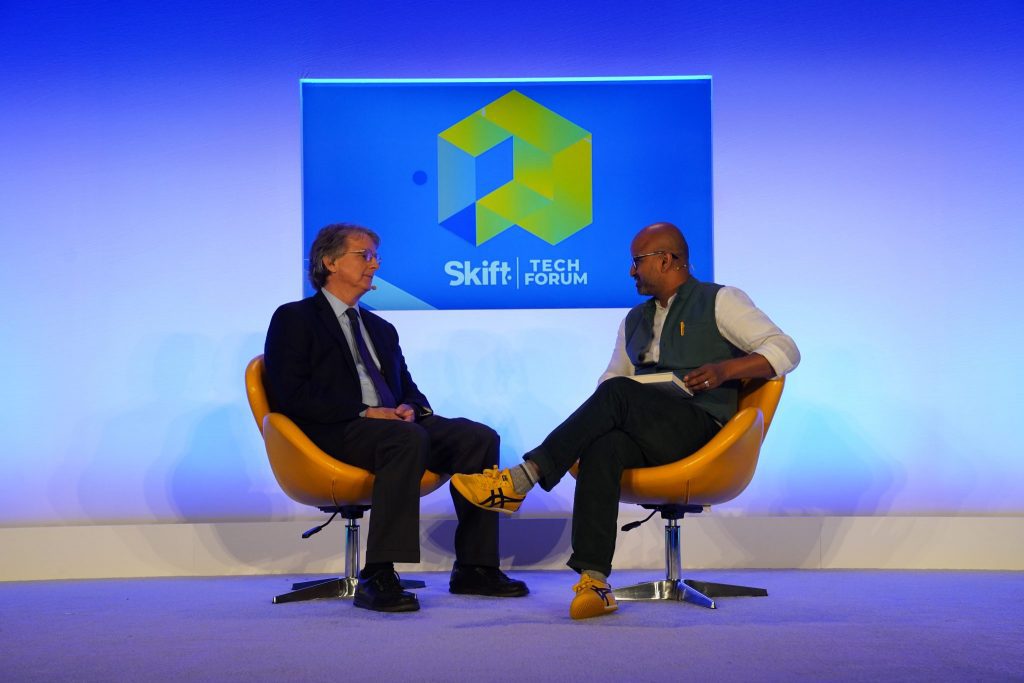6 Big Travel Takeaways From Skift Tech Forum

Skift Take
The travel industry is obsessed with Big Data and artificial intelligence. The genie is out of the bottle. But the best way to use it will trigger an intense debate and much soul-searching.
It's not just the largest and richest companies in travel that are on the personalization path these days, and even the smaller players are currently grappling with the best ways to upend tech stacks to ready their companies for the big changes ahead.
From the stage and in conversations among attendees, the following were some of the issues on many companies' minds at Skift Tech Forum in San Francisco Wednesday night and Thursday. The following are key takeaways:
To see video of sessions from Skift Tech Forum 2019, click here
A Data Divide Most speakers at Skift Tech Forum are obsessed with how to use Big Data in the form of machine learning and artificial intelligence to improve their products and the customer experience. But there was not unanimity. Roger McNamee, co-founder of Elevation Partners, early Facebook investor, and author of "Zucked: Waking Up to the Facebook Catastrophe," argued that "data is a drug. To see into the thoughts of consumers is very compelling." But McNamee said companies like Google use data to manipulate consumer choice, which is inherently authoritarian, and that this destroys travel brands. He said the way platforms like Facebook and Google do damage to children, and disseminate hate speech are public health and civil rights issues. McNamee said travel companies have so much potential to be a force for good without allowing the big platforms to surveil consumer behavior. He said travel brands should provide their customers with burner phones with c
